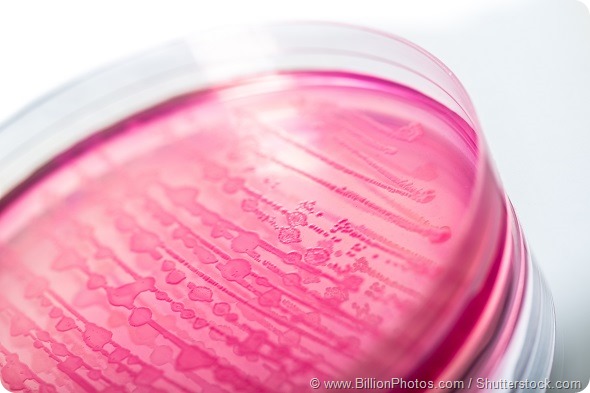E.coli has become resistant to the last line of antibiotics we have left and untreatable bugs may already be circulating in Britain, scientists warn.

Currently, when all other treatments have failed, physicians prescribe polymyxins to treat bugs such as E.coli and the infections that cause pneumonia.
However, a new gene called mcr-1, that enables bacteria to become highly resistant to these drugs has been found in pigs in south China. Mutated bacteria strains were also found in hospitalized patients and experts believe the mutation may already have spread to Malaysia and Laos.
Worryingly, the mcr-1 gene is present in a part of the DNA that can easily be transferred between bacteria and “pandemic resistance is inevitable,” say scientists.
As reported in The Lancet Infectious Diseases, Jian-Hua Liu (South China Agricultural University, Guangzhou) and colleagues performed routine testing of animals for antimicrobial resistance in 2011 and isolated a strain of E.coli from one pig that showed resistance to a polymyxin called colistin.
Over the next four years, the team collected bacteria from pigs across four provinces, as well as from pork and chicken sold at 30 open markets and 27 supermarkets. They also collected bacteria from patients with infections who were hospitalized in Guangdong and Zhejiang.
Polymerase chain reaction (PCR) and sequencing revealed a high prevalence of mrc-1 in E. coli isolates. The gene was present in 166 of 804 animals; 78 out of 523 raw meat samples and in 16 E coli and K pneumoniae isolates taken from 1322 patients.
Alarmingly, the rate at which mcr-1 is copied and transferred between bacteria was very high between different strains of E. coli and the gene is also potentially able to spread to epidemic bacterial species such as Pseudomonas aeruginosa and K pneumoniae.
These are extremely worrying results. The polymyxins (colistin and polymyxin B) were the last class of antibiotics in which resistance was incapable of spreading from cell to cell. Until now, colistin resistance resulted from chromosomal mutations, making the resistance mechanism unstable and incapable of spreading to other bacteria”
Jian-Hua Liu, South China Agricultural University, Guangzhou.
Timothy Walsh from the Cardiff Institute of Infection & Immunity says: “The effect on human health posed by this new gene cannot be underestimated. The rapid spread of similar antibiotic-resistant genes suggests that all antibiotics will soon be futile in the face of previously treatable gram-negative bacterial infections such as E.coli and salmonella.”
Walsh warns that mcr-1 will probably spread around the rest of the world at an alarming rate unless a globally coordinated approach is taken to combat it. Speaking of Britain, he says it may already be here.
The Chinese government is taking the problem very seriously and has immediately responded by launching a risk assessment on the use of colistin in animal feed. In Britain, Public Health England has called for NHS patients to become Antibiotic Guardians and to take more care to prevent infections.